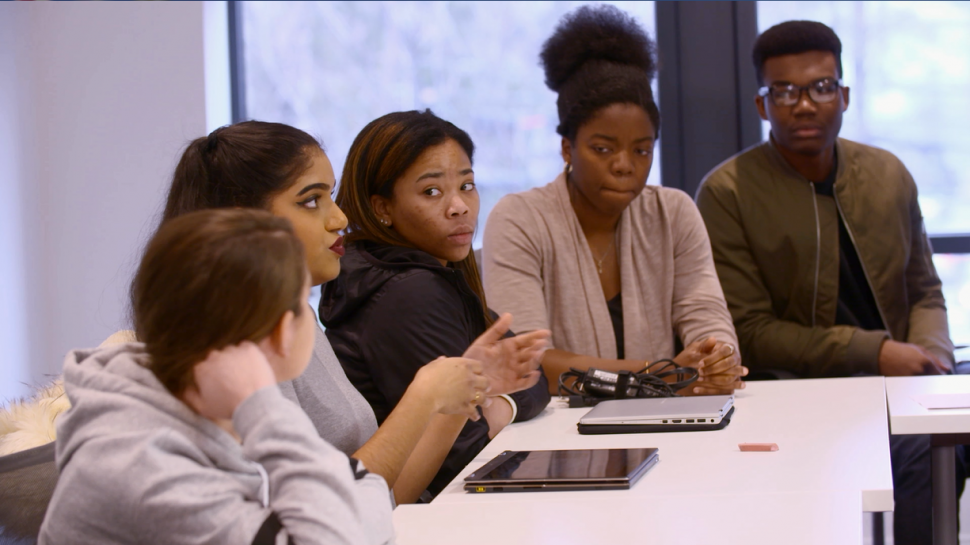John Tolley, September 9, 2017
Curiosity. Knowledge. Purpose.
This is the motto of the Honors College of Rutgers University- New Brunswick, and it understandably permeates everything that the innovative living and learning community does.
?We think of it as a promise fulfilled,? says Matt Matsuda, academic dean of the Honors College. ?The idea was to really put together a community [with] on-site advising, special curricula and incredible opportunities to really raise the level of possibilities here at the university.?
Every year, 500 students are invited from the six major undergraduate schools of Rutgers - the School of Arts and Sciences, School of Environmental and Biological Sciences, School of Engineering, Rutgers Business School, Ernest Mario School of Pharmacy, and Mason Gross School of the Arts - to live and study collectively within the walls of the Honors College.
As these students work towards their majors, they are concurrently challenged to pull together their respective strengths to craft innovative solutions to complex global issues.
?We?re really focused on social innovation and change-making,? Matsuda notes. ?The students form these teams where the engineer works with the dancer and the biologist works with the finance manager and the policy person works with the environmental scientist. It?s the expression of the mission of the Honors College.?
Starting in the first-year mission course The Forum, student groups coalesce around shared topics of concern. They are charged with creating a project supported by a proof-of-concept that they then pitch to a panel of judges pulled from a variety of professions and industries. It?s not an easy process, says Matsuda. Students learn in real time what works and what doesn?t within the realities of the issue they?re tackling, and recalibrate or completely reform their projects to better fit those needs and realities.
In year two, students transition their vetted projects into the Honors College Innovation Lab, both a course and physical space dedicated to developing, implementing and launching big ideas. Director of Innovation Mukesh Patel works closely with the teams, helping them put together a plan and offering advice on a host of matters from legal issues to incorporation structure to branding. Students work hard to secure funding, entering innovation fairs and pitch competitions and presenting to philanthropists and socially-minded investors.
Below is small sample of the student-led projects that have been gestated in the Honors College incubator:
R-FInD
Focused on public health and triage in emergency and disaster situations, the R-FInD team developed a simple piece of wearable tech that could save countless lives. A bracelet bearing a radio frequency identification tag can be used in a myriad of ways, from patient evaluation to family reunification. R-FInD was also designed with the mounting refugee crises around the world in mind. In often overwhelmed camps, families can easily get separated and medical resources are often stretched thin. R-FInD hopes to speed help to those in need in the most expeditious manner possible.
Nutrivide
To combat malnutrition in developing areas of the world, the Nutrivide team of materials engineering and public health students leverage the universal comfort infants find in a pacifier to deliver a nutrient-rich gel. The team couples this with helpful information on proper nutrition and health with an eye to improving infant mortality rates and overall family well-being.
Oasis
This green grocer on wheels is poised to deliver much-needed, locally-sourced, nutritious foods to areas of New Brunswick categorized as food deserts. In these areas, access to healthy, fresh fruits and vegetables is scarce to nonexistent, and the families living in these areas often lack the resources, monetary or otherwise, to shop in the upmarket grocery stores that offer these items. To keep prices affordable, the Oasis team is looking into implementing a unique cross-subsidization model that would see the truck also visiting upper and middle class areas, using one part of their business model to help defray the cost of another.
Oasis team member Yesha Parekh, a pre-med student majoring in cell biology and neuroscience with a minor in health and society, thought that she?d pursue a fairly straightforward path to her MD at Rutgers. But her experience with the Honors College and the Innovation Lab opened her eyes to the vast possibilities available. ?It got me interested in looking at the social aspect of businesses, and how I can incorporate that into my pre-med track as well as looking at more of the humanities perspective.?
As Yesha explains, the Honors College instills in its students, from convocation onwards, a duty to look beyond the artificial barriers that stifle their vision and to realize they have the means to effect real change.
?I now view things from so many different perspectives. My world has been expanded; my horizon has been expanded. We all live in this big bubble, and there?s so much else outside of this bubble that we need to realize and help address.?







